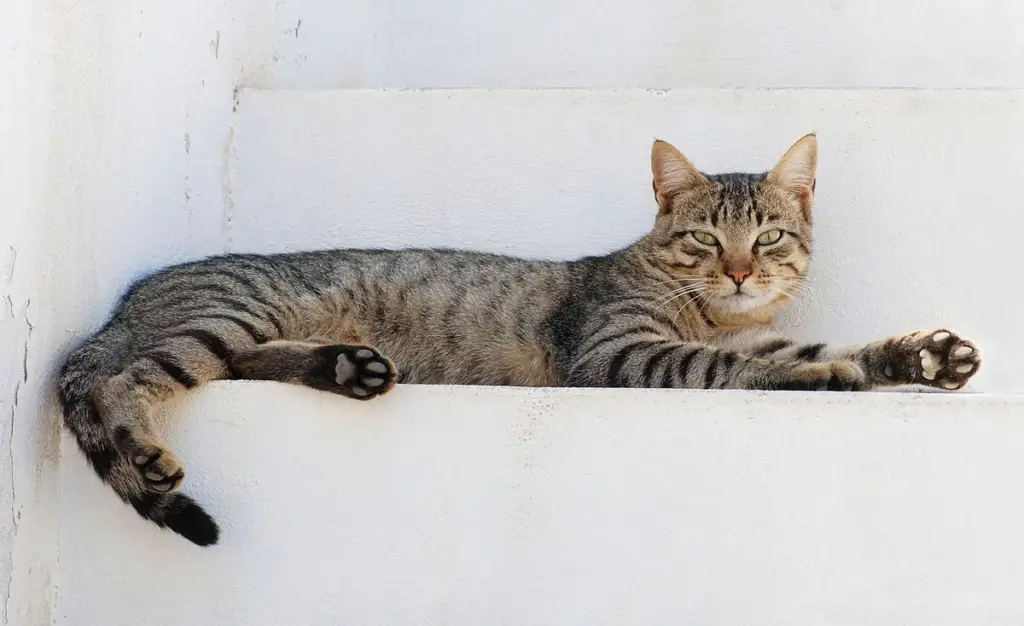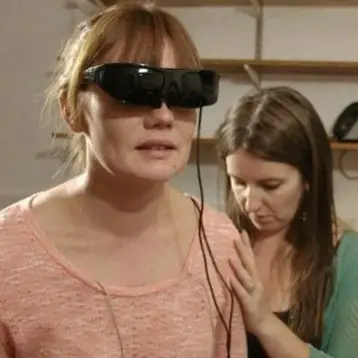Is My Cat’s Pee Normal? As a cat owner, you may have noticed that your feline friend doesn’t exactly come with an instruction manual, especially when it comes to health matters. While cats are often more discreet about their habits compared to dogs, understanding your cat’s urinary health is vital for their overall well-being. One of the most significant indicators of a cat’s health is their urine. This article aims to equip you with knowledge about what normal cat urine looks like, common urinary health issues, and when to seek veterinary help.
Understanding Normal Cat Urine

What Should Normal Cat Urine Look Like?
Normal cat urine has specific characteristics that can indicate the overall health of your feline friend. Here are the key factors to consider:
- Color: Normal cat urine is typically a pale yellow to amber color, depending on your cat’s hydration level. The more concentrated the urine (less water), the darker it will appear. Conversely, well-hydrated cats tend to have lighter urine.
- Clarity: Healthy cat urine should be clear. Cloudy urine can indicate the presence of crystals, bacteria, or mucus.
- Odor: While cat urine has a distinct smell, it should not be overly strong or foul. A strong ammonia-like odor can indicate a concentrated urine, which may be a sign of dehydration or urinary tract infection (UTI).
- pH Level: Cat urine is usually slightly acidic, with a pH ranging from 6 to 6.5. An abnormal pH can lead to urinary issues, including crystal formation.
- Specific Gravity: This measure indicates the concentration of urine. A healthy specific gravity for cats usually ranges between 1.020 and 1.040.
Puppy Tech is Changing the Journey of our Pet – Get the right Stuff to Improve their Lives
Factors Influencing Urine Characteristics
Several factors can affect your cat’s urine characteristics, including:
- Diet: Cats fed a dry food diet often have more concentrated urine than those on wet food. Wet food helps increase hydration levels and dilute the urine.
- Hydration: Adequate water intake is essential for healthy urine. If your cat isn’t drinking enough, their urine may be darker and more concentrated.
- Health Conditions: Underlying health issues can significantly alter urine characteristics. Conditions such as diabetes, kidney disease, and urinary tract infections can change the color, clarity, and odor of your cat’s urine.
Common Urinary Health Issues in Cats
Understanding common urinary health issues can help you identify potential problems early. Here are some of the most frequent urinary conditions in cats:
1. Urinary Tract Infection (UTI)
A UTI occurs when bacteria invade the urinary tract, leading to inflammation and infection. Symptoms include:
- Frequent urination
- Straining to urinate
- Blood in the urine
- Strong-smelling urine
2. Feline Idiopathic Cystitis (FIC)
FIC is a condition characterized by inflammation of the bladder without an identifiable cause. Stress, diet, and environmental factors can contribute to this condition. Symptoms include:
- Frequent urination
- Painful urination
- Blood in the urine
- Urinating outside the litter box
3. Bladder Stones
Bladder stones (uroliths) are mineral deposits that can form in the bladder. They can cause blockages and irritation. Symptoms include:
- Straining to urinate
- Blood in the urine
- Frequent urination
- Crying or vocalizing while trying to urinate
4. Urinary Obstruction
This is a medical emergency, especially in male cats. A urinary obstruction occurs when the urethra becomes blocked, preventing urine from being expelled. Symptoms include:
- Inability to urinate
- Distended abdomen
- Lethargy
- Vomiting
- Excessive grooming of the genital area
5. Kidney Disease
Chronic kidney disease (CKD) is a common condition in older cats. It affects the kidneys’ ability to filter waste from the blood, leading to various symptoms, including:
- Increased thirst and urination
- Weight loss
- Poor appetite
- Vomiting
- Lethargy
Technology and Pets: A Purrfect Match
How to Monitor Your Cat’s Urinary Health
Regularly Check Their Litter Box
Monitoring your cat’s litter box habits is essential. Keep an eye on the following:
- Frequency: Note how often your cat urinates. An increase or decrease in urination can signal a problem.
- Consistency: Cats should urinate at least 2-4 times a day. If your cat is straining or has difficulty urinating, it could indicate an issue.
- Color and Clarity: Observe the color and clarity of the urine in the litter box. Changes can be a sign of underlying health problems.
Watch for Behavioral Changes
Changes in your cat’s behavior can indicate urinary health issues. Pay attention to:
- Litter Box Avoidance: If your cat starts urinating outside the litter box, it may be a sign of a urinary tract issue or discomfort.
- Vocalization: Excessive vocalization while trying to urinate can indicate pain or discomfort.
- Changes in Grooming Habits: Over-grooming the genital area may indicate discomfort or irritation.
Keep Track of Water Intake
Monitoring your cat’s water intake is essential for urinary health. Cats should drink at least 2-4 ounces of water per five pounds of body weight each day. If you notice changes in your cat’s drinking habits, it could indicate health issues.
What to Expect from Pet Cages in Future
When to Seek Veterinary Help
While it’s essential to monitor your cat’s urinary health, some situations require immediate veterinary attention. Be aware of the following signs:
- Straining to Urinate: If your cat is straining or unable to urinate, this can be a medical emergency, particularly for male cats.
- Blood in the Urine: Blood can be a sign of infection, bladder stones, or more severe conditions that require immediate attention.
- Lethargy and Vomiting: These symptoms, coupled with urinary issues, can indicate serious health problems, including urinary obstruction or kidney disease.
- Excessive Thirst: Increased water intake can indicate diabetes or kidney disease and should be evaluated by a veterinarian.
- Urinary Incontinence: If your cat is leaking urine or experiencing incontinence, it’s essential to seek veterinary advice.
Diagnostic Tests for Urinary Health
When you visit the veterinarian regarding your cat’s urinary health, they may recommend several diagnostic tests, including:
1. Urinalysis
A urinalysis is a fundamental diagnostic tool for evaluating urinary health. This test examines the urine’s color, clarity, specific gravity, pH, and the presence of crystals, bacteria, or blood.
2. Urine Culture
If a UTI is suspected, a urine culture may be performed to identify the specific bacteria causing the infection. This test helps determine the most effective antibiotic treatment.
3. Blood Tests
Blood tests can assess kidney function and identify other underlying health conditions. They can help evaluate levels of creatinine, blood urea nitrogen (BUN), and other important markers.
4. Imaging Studies
In some cases, imaging studies such as X-rays or ultrasounds may be necessary to identify bladder stones or structural abnormalities in the urinary tract.
Preventing Urinary Health Issues
1. Provide a Balanced Diet
A balanced diet is crucial for maintaining urinary health. Choose high-quality cat food that meets your cat’s specific nutritional needs. Consider options formulated to promote urinary health, which often include added moisture and specific nutrients to prevent urinary issues.
2. Encourage Hydration
Ensure your cat stays well-hydrated. Here are some tips to encourage water intake:
- Fresh Water: Always provide fresh, clean water. Cats may prefer running water, so consider a pet water fountain to entice them to drink more.
- Wet Food: Incorporate wet cat food into your cat’s diet. Wet food has a higher moisture content and can help increase hydration levels.
- Broth or Watered-Down Food: You can add low-sodium chicken or beef broth to your cat’s food to encourage drinking.
3. Maintain a Clean Litter Box
Keeping your cat’s litter box clean encourages them to use it regularly. Regularly scoop the box and change the litter to provide a clean, comfortable environment.
4. Manage Stress
Stress can contribute to urinary issues in cats. Create a calm environment for your cat by providing hiding spots, vertical spaces (like cat trees), and interactive toys. Avoid sudden changes in routine that could stress your cat.
5. Regular Vet Check-Ups
Routine veterinary check-ups are essential for monitoring your cat’s overall health, including urinary health. Regular check-ups can help identify potential issues before they become serious.
Natural Remedies and Supplements for Urinary Health
In addition to a balanced diet and veterinary care, some natural remedies and supplements may help support your cat’s urinary health. Always consult your veterinarian before introducing any new treatments.
1. Herbal Remedies
Certain herbs, like cranberry and dandelion, may support urinary health. Cranberry is known for its potential to prevent UTIs by inhibiting bacterial adhesion to the bladder wall. Dandelion may have diuretic properties that help flush toxins from the urinary system.
2. Probiotics
Probiotics can promote urinary health by maintaining a balanced gut microbiome. A healthy gut can support the immune system and may help prevent urinary tract infections.
3. Omega-3 Fatty Acids
Omega-3 fatty acids, found in fish oil, have anti-inflammatory properties that may benefit urinary health. They can help reduce inflammation in the bladder and support overall health.
4. Urinary Health Supplements
There are commercial supplements specifically formulated for urinary health in cats. These may contain ingredients like glucosamine, cranberry extract, and specific vitamins to support urinary function.
Conclusion
Monitoring your cat’s urinary health is crucial for their overall well-being. By understanding the characteristics of normal urine, recognizing potential health issues, and knowing when to seek veterinary help, you can play an active role in your feline friend’s health.
Remember to provide a balanced diet, encourage hydration, maintain a clean litter box, manage stress, and schedule regular veterinary check-ups. Being proactive about your cat’s urinary health can help you catch potential issues early, ensuring a longer and healthier life for your beloved pet. Your cat relies on you to be their advocate, so stay informed and attentive to their needs.









